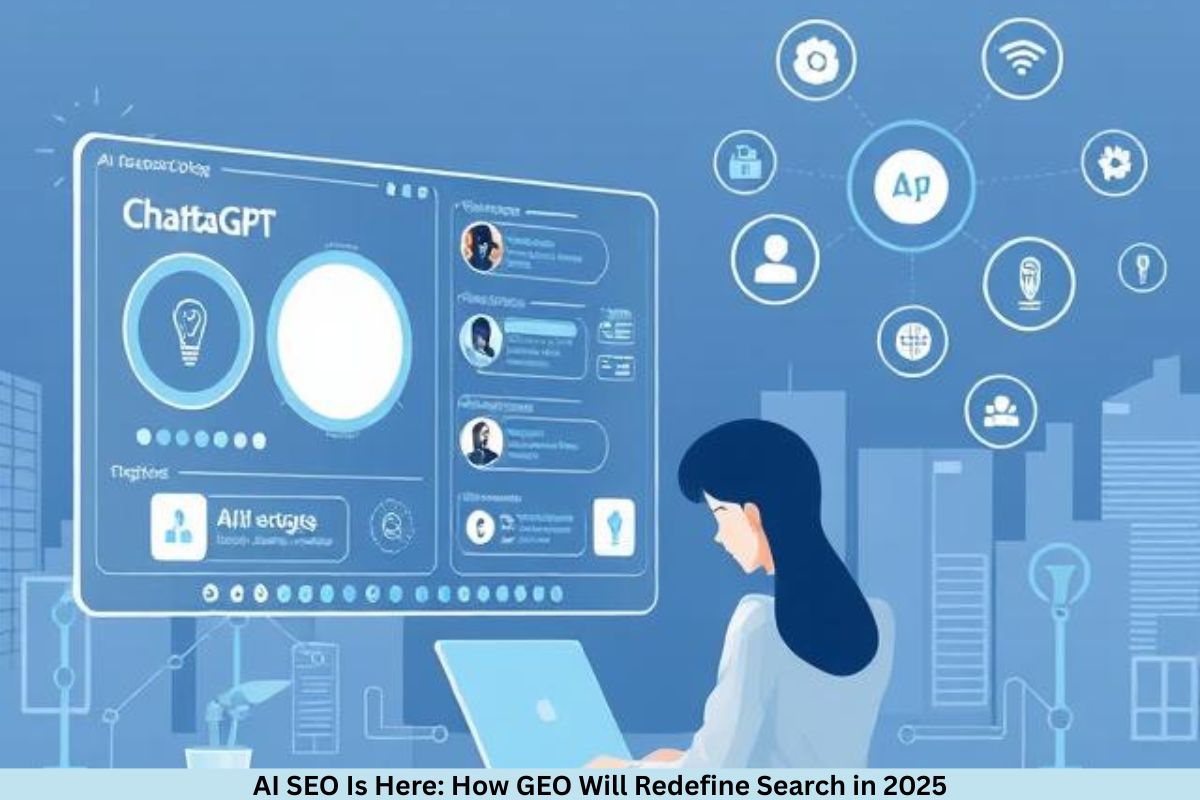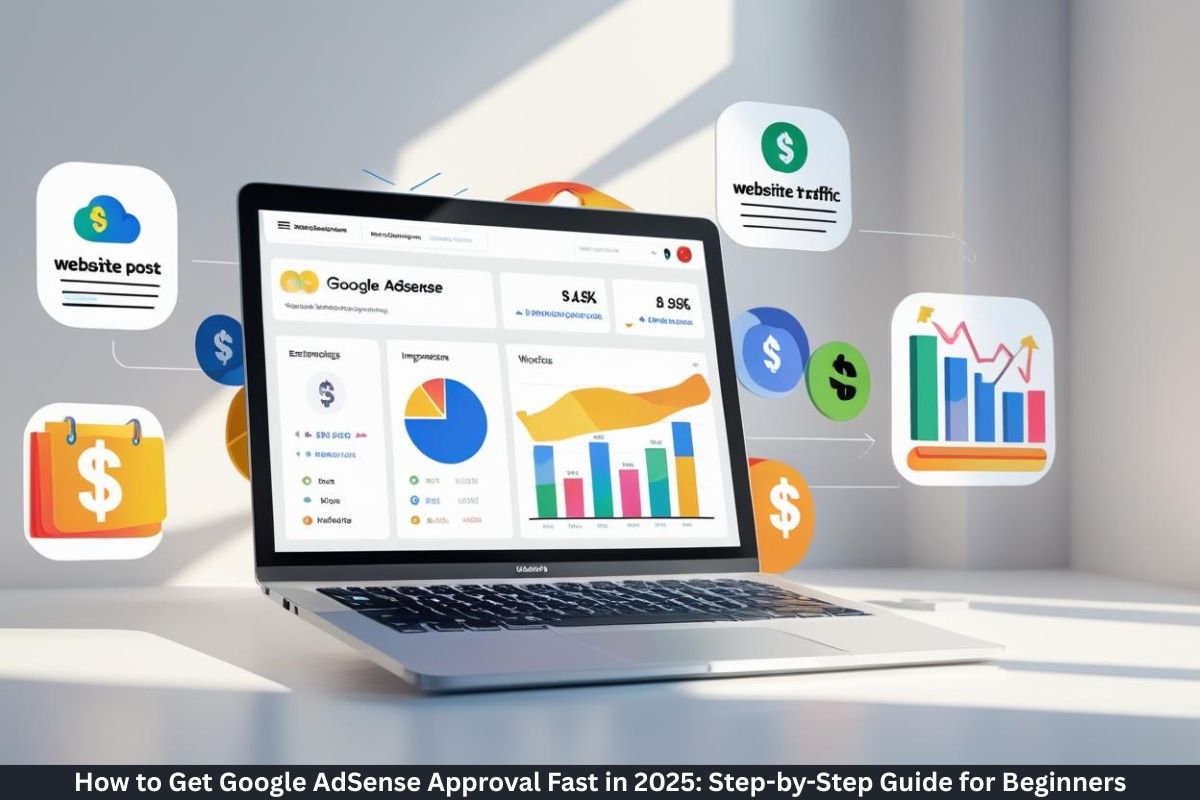If you’ve been relying on conventional search engine optimization techniques, 2025 might be the 12 months that changes the whole thing. Welcome to the age of Generative Engine Optimization (GEO)—where AI-powered engines like ChatGPT, Google’s AI Overviews, and Perplexity AI are reshaping how people discover and engage with information.
Forget blue hyperlinks and keyword stuffing. In this new international, it’s now not just about rating on page one—it’s about being the solution.
What Is Generative Engine Optimization (GEO)?
Definition of GEO
Generative Engine Optimization (GEO) is the system of optimizing content specially for AI-powered generative engines. These engines don’t just index web pages—they generate solutions through understanding context, reason, and semantics.
How GEO Differs from Traditional search engine optimization
Traditional search engine optimization focuses on keyword density, one-way links, and meta tags. GEO, alternatively, prioritizes conversational tone, motive matching, and semantic relevance.
- Traditional SEO: Optimize for bots.
- GEO: Optimize for conversational AIs that mimic human conduct.
The Rise of AI in Search Engines
Google AI Overviews (SGE)
With Search Generative Experience (SGE), Google now generates AI-powered summaries on top of outcomes. If you’re now not covered in that precis, you’re invisible.
ChatGPT as a Search Companion
More human beings are turning to ChatGPT in preference to Google. Its conversational interface offers customers direct answers, often bypassing traditional search.
Perplexity AI and Real-Time Answers
Perplexity AI pulls facts to generate real-time responses. If your content material isn’t always dependent on this model, it gained’t make the cut.
Why GEO Is the Future of SEO in 2025
People do not need to “search.” They want solutions—speedy, accurate, and contextual. GEO makes your content geared up to be the source that generative engines pull from.
How Generative Engines Work
Crawling vs. Understanding
Search engines of the past crawled content. Today’s AI systems recognize it. That method prioritizes readability, coherence, and context.
Conversational and Contextual Search
GEO content speaks the language of the consumer. It’s now not a robot—it is relatable and responsive, much like communicating with a pal.
Key Strategies for GEO search engine optimization in 2025
1. Focus on Natural Language Content
Write like you speak. Forget about robotic phrases and create content material that feels human. Ask questions. Offer real answers.
2. Optimize for Answer-Based Queries
Think “How-to,” “What is,” and “Why” questions. Break your content material into bite-sized answers that may be without problems quoted by way of AI.
3. Use Schema and Structured Data Wisely
Help engines apprehend your content better the usage of FAQ Schema, HowTo Schema, and Article Schema.
4. Create Conversational Content
Use brief sentences. Ask rhetorical questions. Add analogies. Make your content material a speech, no longer a lecture.
5. Prioritize User Intent Over Keywords
GEO is all about solving problems. So in place of concentrated on “first-class laptops 2025,” address the cause: “What should I search for in a laptop in 2025?”
Content Formatting for AI Engines
Bullet Points and Short Paragraphs
These are less complicated for AI to experiment, summarize, and find in overviews.
Headings and FAQs for Better Indexing
Use clear headings to divide sections. AI fashions look for established content to quote and cite.
Tools to Help You Succeed at GEO
ChatGPT for Drafting and Ideation
Use ChatGPT to brainstorm subjects, generate outlines, and enhance conversational tone.
Perplexity for Real-Time Search Trends
Track what users are asking properly now and tailor your content for that reason.
Google Search Console for AI Insights
Stay up to date with how your content material plays on SGE and other AI consequences.
The Role of E-E-A-T in Generative Search
Experience, Expertise, Authoritativeness, and Trustworthiness (E-E-A-T) count extra than ever. AIs are trained to filter low-believe content.
Want to be referred to via an AI? Be the professional it would consider.
Challenges of Adapting to GEO
- Letting go of old key-word techniques
- Learning new equipment and structures
- Writing for both humans and machines
But individuals who adapt first? They win massive.
The Future of Content Marketing with AI search engine optimization
As generative engines evolve, content turns into a verbal exchange. Marketing may not just be about visibility—it’ll be approximately relevance and agree with.
Industries That Will Be Most Impacted via GEO
- Healthcare: Patients want on the spot, accurate recommendation.
- Education: Students searching for quick answers with context.
- Finance: Trust and real-time accuracy are key.
- E-commerce: Products should be discoverable with the aid of AIs.
Measuring Success in a GEO World
Traditional metrics like CTR and leap charge still depend—but now you furthermore may want to song:
- AI quotation frequency
- Visibility in AI Overviews
- User retention from AI structures
GEO and Voice Search: A Powerful Combo
GEO and voice seek to cross hand-in-hand. As voice assistants use generative models, being voice-pleasant = being AI-pleasant.
Conclusion: Don’t Just Rank, Be the Answer
The search engine optimization panorama is moving rapidly. In 2025, it’s not approximately climbing Google’s ladder. It’s approximately the answer that AIs consider and deliver.
Start thinking like a system, write like a human, and role your content material to dominate this new wave of AI SEO.
FAQs
What is Generative Engine Optimization (GEO)?
GEO is a modern-day search engine optimization technique that optimizes content material for AI-powered search engines like Google and Yahoo, like ChatGPT and Google AI Overviews, in preference to just traditional seek engine bots.
How does GEO search engine marketing differ from traditional search engine marketing?
Unlike traditional SEO, which specializes in keywords and backlinks, GEO specializes in natural language, user cause, and conversational relevance for AI engines.
How can I optimize for Google AI Overviews?
Use clear headings, solution-based content, and schema markup. Focus on writing informative, E-E-A-T-wealthy content material that AIs can without problems summarize.
Is ChatGPT changing Google seek?
Not absolutely, but extra customers are turning to ChatGPT for fast, conversational answers, making it a key platform for GEO.
Why is GEO the destiny of SEO?
Because AI search is changing the vintage “10 blue hyperlinks” model. GEO ensures your content gets determined and noted in those new, AI-pushed answers.




